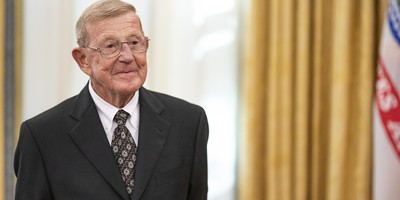Right now, the back seat of my car is more than a little crowded. In addition to the usual litter that lingers in my cup holders and seatback pockets, a bright red box spans the width of the entire back seat. In it: My artificial Christmas tree. That’s OK with me -- I’ll find a place to store it eventually.
But, apparently, it’s not OK with the “Christmas Tree Checkoff Task Force,” a select group of natural Christmas tree producers and importers who are so troubled by “increased competition” and “changing consumer habits” in the Christmas tree market that they’ve asked the U.S. Department of Agriculture to create a “Christmas Tree Promotion, Research and Information Order.”
The order would create a “Christmas Tree Promotion Board” to promote the sales of natural Christmas trees. To do that, the board would impose a 15-cents-a-tree charge on businesses that sell 500 or more Christmas trees. Marketing efforts take money, after all.
Producers in favor of the program argue that without a federal board to systematically promote their product, they might never again be able to sell fresh trees as effectively as they have in the past.
That’s probably true. Since 1968, fresh Christmas trees have captured an increasingly smaller share of the overall Christmas tree market. By 2008, market share had declined 6 percent. Sales decreased by 15 million trees just from 1991 to 2002.
But producers found that, when they pooled their money and concentrated their marketing attempts, they could boost sales. In 2002, they did just that -- and sales rebounded from 22 million trees sold in 2002 to 31 million trees sold in 2007. Despite the increase in sales, the voluntary marketing program saw a decline in its own revenue.
Recommended
“The Christmas tree industry has tried three different times to conduct promotional programs based on voluntary contributions,” the USDA reports in the Federal Register. “Each time, after about three years, the revenue declined to a point where the programs were ineffective. The decline in revenue is attributable to the voluntary nature of these programs. Therefore, the proponents have determined that they need a mechanism that would be sustainable over time. They believe that a national Christmas tree research and promotion program would accomplish this goal.”
Perhaps it would -- but no amount of marketing would motivate me to chuck my artificial tree from the back seat of my car. I like the cost-effectiveness of my one-time purchase of a tree. In the meantime, the federal government would have needlessly intervened yet again in the free market.
The USDA recently reopened the public comment period on the proposed establishment of a Christmas tree promotional program -- and The Heritage Foundation plans to submit its response.
Heritage Vice President for Domestic and Economic Policy David Addington said it best when he put it this way: “Sales of fresh Christmas trees are down because some Americans have individually decided to buy an artificial Christmas tree or not to have a Christmas tree. In a free market, the proper response of businesses that face a sales decline is to seek to create more demand for their product by more effective advertising, lower price or increased quality, or a combination thereof -- not to ask the government to help them sell their products.”

























Join the conversation as a VIP Member